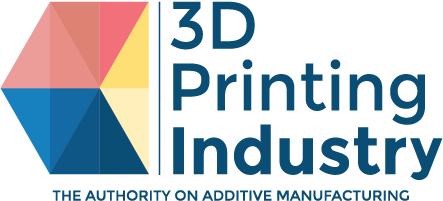Shenzhen-based leading 3D printer manufacturer Creality has successfully concluded its sponsorship of the First Funbotics Camp (the First Camp) organized by Yale Funbotics, a non-profit organization within Yale University. This news comes right after Creality K1 Max 3D printer market launch last month.
Having commenced on July 21-23, the event encompassed virtual training and instructional sessions zeroing in on 3D printing. “As a pioneer in the 3D printing industry, Creality recognizes the significance of education in nurturing future innovators,” said Huilin Liu, Co-founder of Creality. “Our collaboration with Yale University is a testament to our commitment to promoting the accessibility and understanding of 3D printing technology among young minds.”
Providing students with comprehensive 3D printing knowledge
The primary aim of the First Camp was to deepen students’ understanding of 3D printing technology through direct engagement. This collaboration involves the organization of three camps. The first camp took place from July 21-23, while the second camp is planned for October 13-14. In reference to the initial camp, more than 50 students registered for the online 3D training. Notably, Creality allocated 50 Ender-3 v2 3D printers and 50 filaments to support the activities of the first camp. Throughout the three camps’ duration, 150 printers and an accompanying 150 filaments will be provided, says Creality.
The three-day Funbotics 3D modeling and printing camp provided students with comprehensive knowledge of the entire 3D printing process. On Day 1, students assembled 3D printers, learning engineering concepts and core functionalities like axes, leveling, and layering. Day 2 focused on creating 3D models from scratch using OnShape software, including an Aztec Pyramid, name tag, and Stick-It-Brick. On the final day, students transformed their 3D models into prints using Ultimaker Cura software, while understanding settings like temperature, size, and speed. Throughout the program, students gained the tools to continue using their 3D printers for further STEM education.
Creality emphasized that its ongoing support for educational initiatives, including its partnership with Yale University, could notably shape the future of 3D printing education and innovation. On one hand, this engagement boosts Creality’s brand reputation. Simultaneously, the company’s contribution to students’ comprehension of emerging technologies resonates with its core values and earns recognition. Furthermore, given students’ inclination to generate innovative ideas and technological advancements, their participation might spark inventive approaches in the realm of 3D printing, ultimately “rejuvenating the entire industry.”
Creality says its sponsorship of upcoming training programs like the Second Camp and Third Camp is driven by its mission to enable individuals to explore the possibilities of 3D printing and realize their aspirations. This aligns with Creality’s broader goal of facilitating hands-on learning experiences. These initiatives hold the potential to significantly expand students’ comprehension of 3D printing technology by encouraging practical experimentation and fostering skills that go beyond theory, nurturing creativity and problem-solving capabilities.
Creality’s initiatives to increase 3D printing reach
In December 2022, Creality concluded the Max Creality League, a significant e-sports event for Brazil’s Free Fire game. Hosted by Max Arena, the country’s largest gaming venue, it attracted 3,200 teams competing for 120,000 BRL (22,000 USD). MEDELLIN FLA won, securing 70,000 BRL (12,000 USD) and a 3D printed trophy. Creality unveiled new 3D printers, including the Ender-5 S1, while promoting the synergy of 3D printing and gaming. The partnership with Max Arena also launched the “Max Experience” AR app. This sponsorship aimed to foster 3D printing enthusiasm among Brazilian youth, following the successful 2021 Space Robotics project.
Additionally, August 2022 witnessed Creality collaborating with biomedical engineer Kyle Reeser, donating 3D printers and filament to Musoma, Tanzania. This initiative empowered Rajabu Hamis of the TABASAMU clinic to create affordable prosthetics. The impact reached the Lake Victoria Disability Centre and TABASAMU, despite challenges from higher disability rates and limited resources. The printers facilitated physical recovery and renewed confidence, aligning with Musoma’s vision of sustainable, all-encompassing progress through 3D printing.
What does the future of 3D printing for the next ten years hold?
What engineering challenges will need to be tackled in the additive manufacturing sector in the coming decade?
To stay up to date with the latest 3D printing news, don’t forget to subscribe to the 3D Printing Industry newsletter or follow us on Twitter, or like our page on Facebook.
While you’re here, why not subscribe to our Youtube channel? Featuring discussion, debriefs, video shorts, and webinar replays.
Are you looking for a job in the additive manufacturing industry? Visit 3D Printing Jobs for a selection of roles in the industry.


